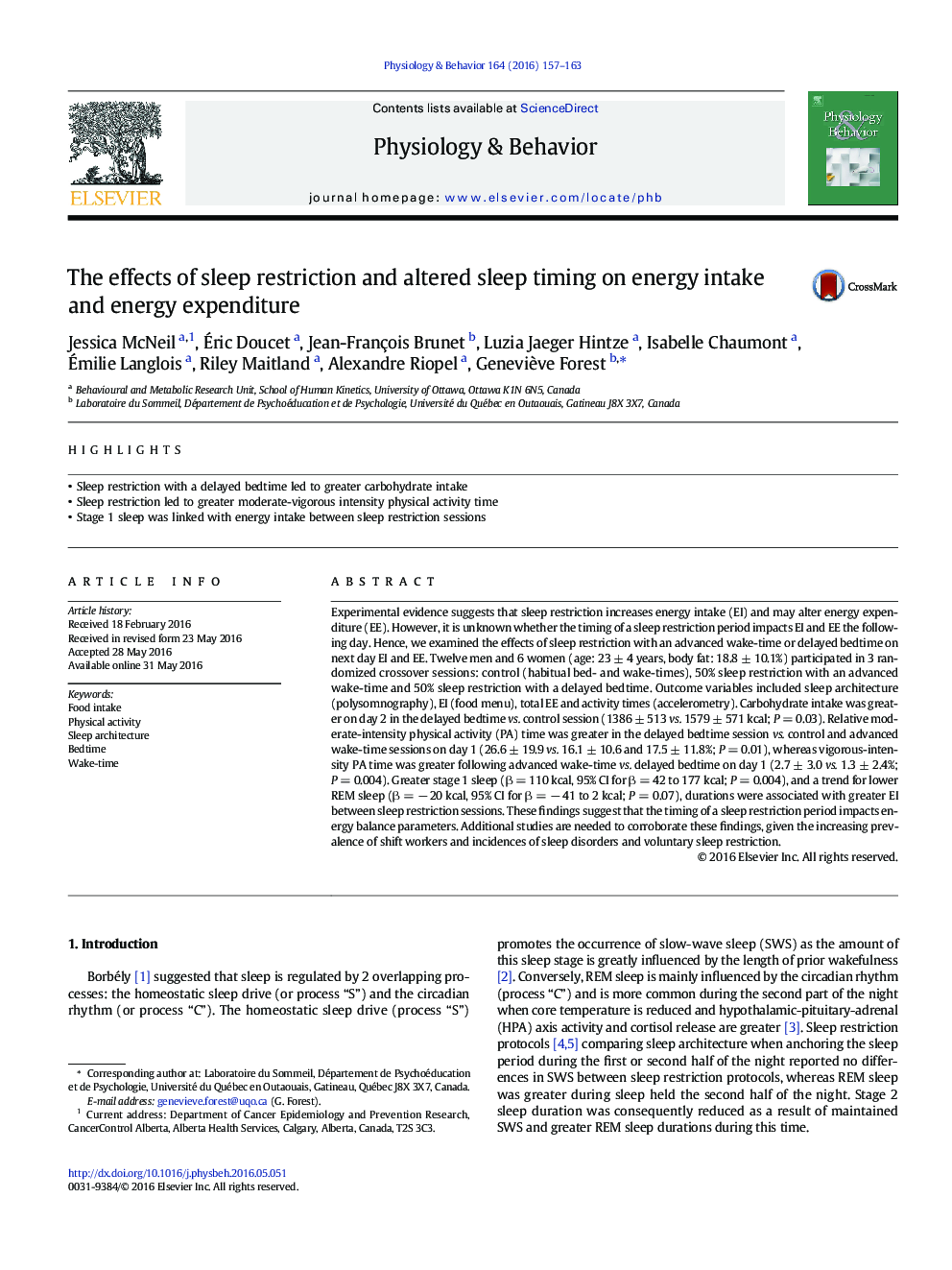| Article ID | Journal | Published Year | Pages | File Type |
|---|---|---|---|---|
| 5922606 | Physiology & Behavior | 2016 | 7 Pages |
Abstract
Experimental evidence suggests that sleep restriction increases energy intake (EI) and may alter energy expenditure (EE). However, it is unknown whether the timing of a sleep restriction period impacts EI and EE the following day. Hence, we examined the effects of sleep restriction with an advanced wake-time or delayed bedtime on next day EI and EE. Twelve men and 6 women (age: 23 ± 4 years, body fat: 18.8 ± 10.1%) participated in 3 randomized crossover sessions: control (habitual bed- and wake-times), 50% sleep restriction with an advanced wake-time and 50% sleep restriction with a delayed bedtime. Outcome variables included sleep architecture (polysomnography), EI (food menu), total EE and activity times (accelerometry). Carbohydrate intake was greater on day 2 in the delayed bedtime vs. control session (1386 ± 513 vs. 1579 ± 571 kcal; P = 0.03). Relative moderate-intensity physical activity (PA) time was greater in the delayed bedtime session vs. control and advanced wake-time sessions on day 1 (26.6 ± 19.9 vs. 16.1 ± 10.6 and 17.5 ± 11.8%; P = 0.01), whereas vigorous-intensity PA time was greater following advanced wake-time vs. delayed bedtime on day 1 (2.7 ± 3.0 vs. 1.3 ± 2.4%; P = 0.004). Greater stage 1 sleep (β = 110 kcal, 95% CI for β = 42 to 177 kcal; P = 0.004), and a trend for lower REM sleep (β = â 20 kcal, 95% CI for β = â 41 to 2 kcal; P = 0.07), durations were associated with greater EI between sleep restriction sessions. These findings suggest that the timing of a sleep restriction period impacts energy balance parameters. Additional studies are needed to corroborate these findings, given the increasing prevalence of shift workers and incidences of sleep disorders and voluntary sleep restriction.
Related Topics
Life Sciences
Biochemistry, Genetics and Molecular Biology
Physiology
Authors
Jessica McNeil, Ãric Doucet, Jean-François Brunet, Luzia Jaeger Hintze, Isabelle Chaumont, Ãmilie Langlois, Riley Maitland, Alexandre Riopel, Geneviève Forest,
